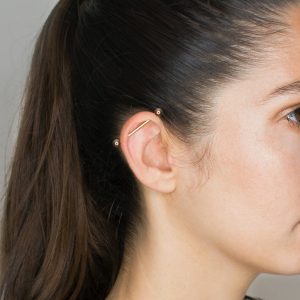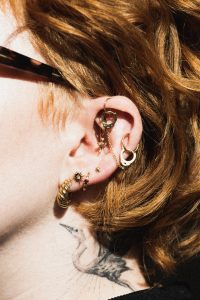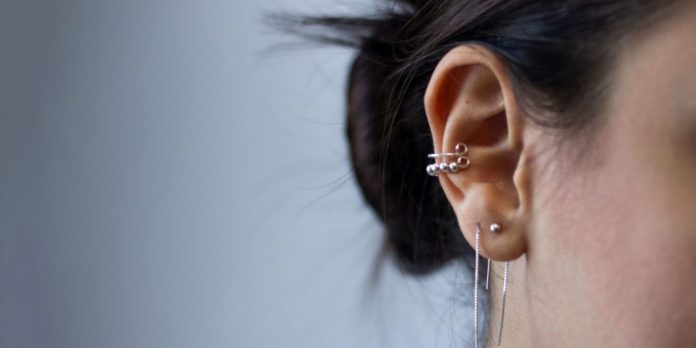Over the last couple of decades, as body modifications have become more socially accepted, piercings have seen an increase in popularity. Since beauty standards have become more relaxed, getting a tattoo or a piercing is no longer frowned upon the same way it would have been 30 years ago. Unlike a tattoo, however, a piercing is usually way easier to conceal, not to mention that it’s a lot more versatile too, since you can change the jewelry you wear anytime you like after it’s healed.
What makes piercings so popular nowadays is that even though they are also permanent, if you get tired of them after a few years, taking out the jewelry may make them completely disappear, which isn’t the case with tattoos.
Although there are a lot of articles about taking care of piercings out there, it can be hard to know which ones to trust, especially since many of them say contradicting things. Here, I’ve compiled a list of 3 basic, foolproof tips that will help you in taking care of your new piercing:
1. Listen to your piercer
This is the most important piece of advice anyone could ever give you in regards to a new piercing or tattoo: go to a professional, and listen to what they tell you to do. Even though it’s usually more expensive to go to a reputable piercer than it is to get pierced with a gun at a jewelry store, it’s also a lot safer.
It’s important to go to a professional piercer because they’ll be able to tell right away whether you have the right anatomy for the piercing you want to get. If you want to get something like an industrial bar in your ear or a septum piercing in your nose, for example, your anatomy might not be suited to it, and it could do you more harm than good to get it done without taking this into consideration.


Moreover, a professional will never use a piercing gun. Although guns can sometimes seem like the better alternative, since they get the job done more quickly, they’re a lot more dangerous than needles. Guns use blunt force to insert the jewelry, which can lead to swelling and bruising, not to mention that the jewelry can end up crooked, which will result in a longer healing process and a higher likelihood of infection.
2. Take proper care of your piercing
This goes hand in hand with the first tip: your piercer will most likely tell you how to take care of your new piercing, and it’s important to do as they tell you if you want it to heal properly. One thing you should avoid at all costs is touching it with dirty hands, especially when it’s fresh, since that can lead to complications such as infections.
You should also avoid sleeping on your piercing until it’s healed, because that can cause you to get piercing bumps. They’re generally not something to worry about and they’ll usually disappear after a couple of days, but they might still slow down the healing process.
3. Wear adequate jewelry
Wearing proper jewelry is extremely important when you have a new piercing, because doing otherwise will probably lead to an infection. If you go to a professional piercer they’re going to use sterile jewelry that shouldn’t cause any trouble during the healing process if you take care of it correctly, but you should still be careful when switching out the jewelry, even if you think your piercing is healed.
You should never wear jewelry that can rust, since this can also lead to skin irritation or infection. However, something like sterling silver isn’t appropriate for long-term wear either, since silver is a soft metal that can easily get deformed, and that, too, can result in irritation. Gold, on the other hand, is safe to use as long as it has between 14 and 18 karats. Anything less than 14 karats might contain nickel, which is irritating, and anything more than 18 karats will be too soft, just like silver.

Most piercers will typically use surgical grade stainless steel or titanium. Both options are generally safe; the only difference is that surgical steel isn’t hypoallergenic, unlike titanium, so there’s still a very slim chance that your body might react badly to it, although that doesn’t happen very often.







